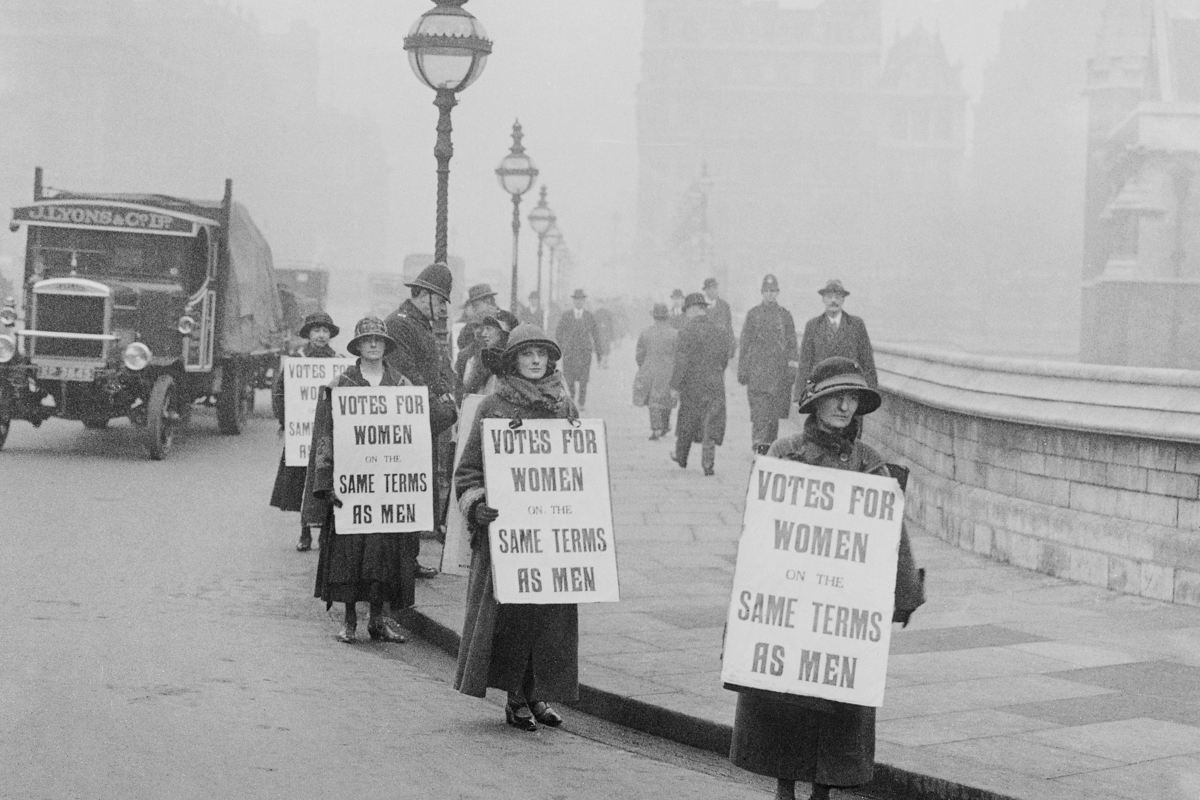It was the first day retail stores had reopened after COVID lockdown in my neighborhood when I saw it. My local bookstore had a display of recent re-releases of novels by women authors, and among the titles, one in particular stood out: “The Call,” by Edith Ayrton Zangwill. That last name, Zangwill, rang a bell.
For those who aren’t me, a historian of early 20th century upper-middle-class Jewish culture, Israel Zangwill and his wife, Edith, may not be exactly household names. That’s a pity, because the two of them were a British-Jewish power couple in the early part of the 20th century and cut a fascinating picture across Jewish history and literature.
Israel Zangwill is best remembered as a playwright, whose plays explored different aspects of Jewish life and identity in Britain and the United States, including immigrant identity, Zionism and the tensions between upper-class and working-class Jewish communities. His wife, Edith Ayrton Zangwill, wrote several novels, most of which, including the fabulously titled “Barbarous Babe,” are sadly out of print. Happily, “The Call” has been reprinted by Persephone Books, and is available to read today.
“The Call” tells the story of Ursula Winfield, a young, upper-middle-class woman in London working as a scientist, and how she hears “the call” to activism and becomes a suffragist, finding love along the way. While the book doesn’t explicitly discuss Judaism, there is more Jewishness to it than its author’s background. You see, “The Call” is a work of fiction, but it’s heavily inspired by the life of Edith Ayrton Zangwill’s beloved stepmother, Hertha Aryton.
Born in Sussex, England, Phoebe Sarah Marks, later known as Hertha Ayrton, was from a family of modest means, but her relatives recognized and supported her ambitions and intellect, helping her to study at Cambridge University and earn a Bachelor of Science from the University of London (the only university in England that granted degrees to women in 1881), which launched her career as a physicist. Hertha was a staunch suffragist, who personally nursed Christabel Pankhurst during her recovery from arrest and force-feeding.
Edith didn’t simply use the outline of her stepmother’s story for “The Call” (although she left out some particularly identifying, but exciting, details, like how Hertha won patents for her scientific discoveries with the financial support of another Jewish feminist, suffragist and women’s education advocate, Lady Louisa Goldsmid). She also used some details of her stepmother’s life for scenes in the book — such as when Ursula tests a fan she invented to disperse toxic fumes in her home, despite the dangers of the experiment. That fan was a real device, and after Hertha found it worked, it was promoted as a means to clear poisonous gasses from frontline trenches in World War I. The War Office refused to adopt the fan — not because it didn’t work, and never mind its potential to save lives, but because a device invented by a woman and tested in her home was considered inherently unserious.
Now, should you read “The Call” because it’s a novel written by one remarkable Jewish woman to honor another? No, of course not. Or at least, that’s not the only reason you should read it. You should read “The Call” because it’s an absolutely charming book that’s a pleasure to lose yourself in. You should read it because it’s an interesting look at the suffrage movement, that takes its subject seriously without losing a sense of fun. You should read it because it’s full of lighthearted rom-com plot points, but still bears weight as a novel. And you should read it because it almost never existed.
When “The Call” was published in 1924, Edith Ayrton Zangwill had her doubts about it. Mainly, she was worried that, as women had been granted the right to vote, no one would be interested in a novel about suffrage. The topic was finished, and for those who were still thinking about it, it was a sore spot. Writing to a friend, Edith worried that a suffrage novel was “too remote to be topical, and to recent to be innocuous.”
Well, I wouldn’t necessarily say “The Call” was topical, let alone innocuous, but it made me smile. It made me think. It made me glad that even in the first decade of the 20th century, Jewish women were fighting for social justice, getting educated, pursuing careers that fulfilled them and helping each other. And in that, even though it was written 100 years ago next year, it still feels relevant.
Maybe, if we’re lucky, we can find out what “Barbarous Babe” is all about next.
Late Take is a series on Hey Alma where we revisit Jewish pop culture of the past for no reason, other than the fact that we can’t stop thinking about it?? If you have a pitch for this column, please e-mail submissions@heyalma.com with “Late Take” in the subject line.




